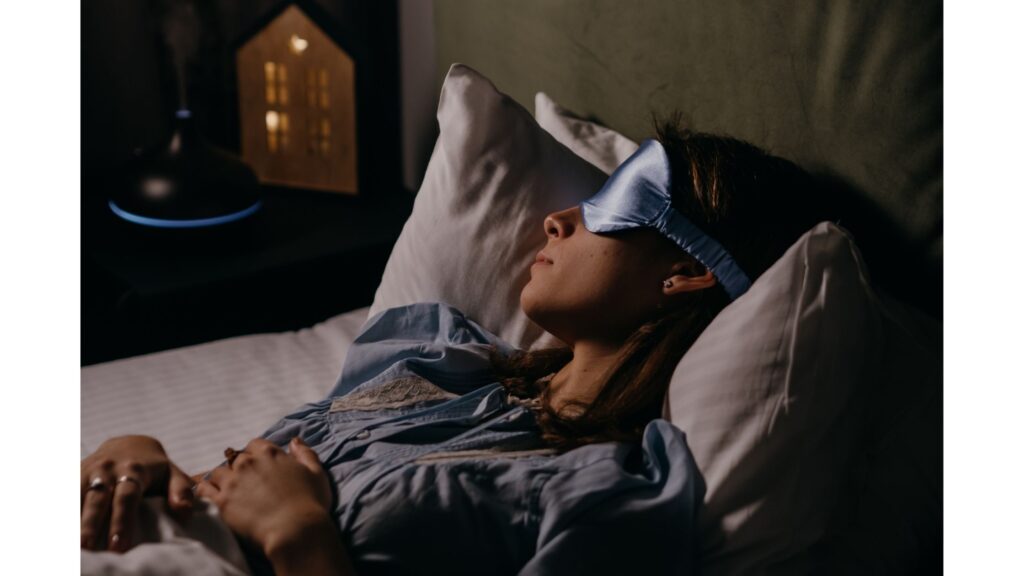20 Effective Habits for Quality Sleep; For many people, quality sleep has become an essential element of a healthy life. Sleep is extremely important for regenerating the body, gaining energy and maintaining mental health. But modern lifestyle and stress can be factors that prevent many people from getting good sleep. Fortunately, it is possible to achieve better sleep throughout the night by adopting healthy sleep habits.

Healthy Sleep Habits: 20 Tips for a Good Night's Sleep
- Set a Regular Sleep Schedule: It's important to maintain consistency in the times you wake up and go to sleep to regulate your body's biological clock. Try to go to bed and wake up at the same time every night, so your body gets used to it and the transition to sleep becomes easier.
- Create a Comfortable Sleeping Environment: It is important to create a quiet, dark and cool environment for sleep. You can use earplugs or a white noise machine to reduce noise, darken your room with curtains or a blindfold, and cool your room so that you sleep at a suitable temperature.
- Follow a Relaxation Routine Before Sleep: It may be helpful to implement relaxation routines to help your body transition into the sleep process. For example, you can try activities such as taking a hot shower, meditating, doing deep breathing exercises, or reading a book. Such routines calm your body and reduce stress before sleep.
- Avoid Caffeine and Alcohol: Beverages containing caffeine (coffee, tea, energy drinks) and alcohol can negatively affect sleep quality. Caffeine has a stimulant effect and can cause insomnia and prevent you from falling asleep. Alcohol can disrupt your sleep patterns and cause you to wake up frequently throughout the night. Therefore, it is important to avoid caffeine and alcohol a few hours before bedtime.
- Pay Attention to Dinner: Eating a heavy meal or overeating before sleep can cause your digestive system to affect your sleep. Try to have your dinner with light and easy-to-digest foods. Additionally, avoiding eating for a few hours before bed can also improve your sleep quality.
- Exercise Regularly: Exercising regularly helps your body consume its energy and regulates your sleep patterns. However, it is important to pay attention to the hours when exercising. Exercising intensely right before bed can make it harder for you to fall asleep. To achieve best results, it is recommended that you leave exercise at least 2-3 hours before sleep.
- Keep Technology Out of the Bedroom: Smartphones, tablets and other electronic devices can affect your sleep by emitting blue light. Try to avoid using these devices for a few hours before sleep. Also, use your bedroom as a space for relaxation and sleep, being careful not to do work or other stressful activities there.
- Use a Mattress and Pillow that Provide Sleep Support: One of the factors that affects your sleep quality is your mattress and pillow. Choosing a mattress and pillow that suits your body allows you to get a comfortable sleeping position. If you have problems such as back or neck pain, you may consider using sleep support products to improve your sleep patterns.
- Expose yourself to Sunlight When You Wake Up: Sunlight helps your body establish a natural waking and sleeping pattern. If possible, try to get sun exposure in the morning hours. Sunlight reduces melatonin levels, increasing your alertness and helping you get a better sleep at night.
- Get Expert Help for Sleep Disorders: If you regularly experience sleep problems and your efforts to regulate your sleep habits are not working, it is important to consult a specialist. Seeing a sleep specialist to diagnose and treat your sleep disorders can help improve your sleep quality.
- Pay Attention to Stress Management: Stress is one of the most common factors that negatively affects your sleep quality. It is important to use techniques to manage the stress of daily life and relax. You can try meditation, yoga, deep breathing exercises or relaxation techniques. Writing stressful thoughts in a notebook before sleep can also relax your mind.
- Use Your Sleep Environment Only for Sleep: Be careful to use your bedroom only for sleep and sexual activities. Try not to watch television, work, or do other stimulating activities in your bedroom. So you can associate your mind with sleep and get a better sleep.
- Have a Good Breakfast After Waking Up: Breakfast helps balance your body's energy levels and increases your alertness. Eating a balanced breakfast helps you concentrate better throughout the day and improves your sleep patterns. Choose a breakfast that contains protein, healthy fats and fiber.
- Limit Stimulants: It is known that cigarettes and products containing nicotine negatively affect sleep quality. Avoiding or quitting smoking can help you get better sleep. Additionally, excessive water consumption before sleep can also cause you to wake up frequently, so it is important to avoid drinking water before bedtime.
- Pay Attention to Sleep Hygiene: Sleep hygiene refers to the general cleanliness and order of your sleeping habits. Clean your bed regularly, change your sheets regularly and air your bed when you wake up. You can also start your day more refreshed by implementing wake-up relief methods (for example, a light walk or stretching) after you wake up.
- Adjust Sound and Light for the Ideal Sleep Environment: Be careful to ensure silence and darkness in your sleeping environment. If you live in a noisy environment, you can use earplugs or a white noise machine. If you have to sleep in a bright environment, you can make your room dark by using thick curtains or a blindfold.
- Consume Light Snacks Before Sleep: Going to bed hungry or feeling overly full at night can negatively affect your sleep quality. As a light snack, you can choose sleep-supporting foods such as milk, banana or almonds. These contain natural sleep inducers like melatonin and tryptophan, which help regulate your sleep patterns.
- Develop a Good Bed Routine: Creating a specific bed routine before going to sleep helps your body prepare for the sleep process. For example, you can do a gentle stretching or relaxation exercise, drink a relaxing herbal tea, or take a hot shower. Discover your own sleep routine and try to follow the same order every night.
- Pay Attention to Fluid Consumption During Sleeping Time: Going to the toilet frequently throughout the night can affect your sleep quality. Limiting fluid consumption a few hours before bedtime can prevent you from waking up sleepy. However, remember to drink enough water throughout the day to prevent dehydration as well.
- Move After Waking Up: Getting out of bed as soon as you wake up helps your body recognize that you are awake. Lying in bed or remaining motionless for long periods of time can disrupt your sleep. Therefore, make sure to get out of bed immediately after waking up and start the day actively.
Healthy sleep habits are vital to a good night's sleep. The tips mentioned above can guide you to improve your sleep quality and wake up with more energy. However, each individual's sleep needs may be different, so it's important to explore through trial and error to find methods that suit your needs.






















